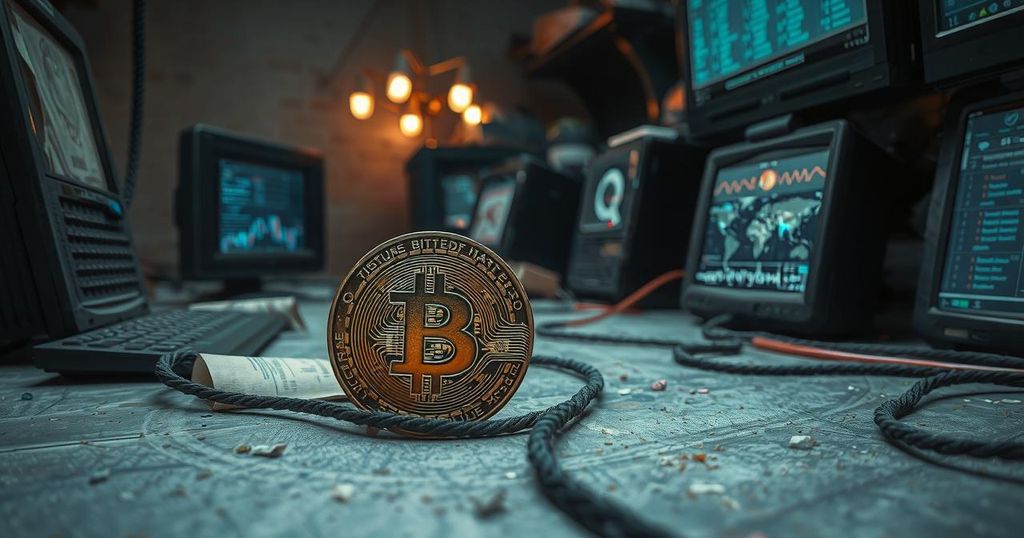El Salvador Discontinues Bitcoin Adoption as Legal Tender Amid Public Discontent
El Salvador is abandoning Bitcoin as legal tender due to lack of public support and IMF requirements. Congress approved reforms clarifying Bitcoin’s status, making its use optional for businesses. Despite earlier enthusiasm, most Salvadorans did not engage with cryptocurrency financially, leading to a revision of Bukele’s ambitious economic strategy.
El Salvador has formally decided to abandon Bitcoin as legal tender following a period of disappointments regarding its adoption. Initially celebrated as a groundbreaking move in 2021 by President Nayib Bukele, Bitcoin was largely unused by the Salvadoran population. Recent congressional reforms, driven by the need to secure a $1.4 billion credit from the International Monetary Fund (IMF), clarified Bitcoin’s status but ultimately reduced its mandatory acceptance in transactions.
The recent legislative changes removed the term “currency” from Bitcoin’s classification but maintained that it serves as “legal tender.” However, the obligation for citizens to accept it in debt payments has been lifted, allowing individuals to refuse Bitcoin payments. Economic analysts emphasize that this undermines Bitcoin’s earlier status as a compulsory currency, reflecting widespread dissatisfaction among Salvadorans who found the cryptocurrency complex and risky.
Under the new reforms, businesses may optionally accept Bitcoin for transactions, nullifying the previous requirement to convert dollar prices to cryptocurrency. The initiative to utilize Bitcoin was met with skepticism from most of the population, where reports indicate 92% of Salvadorans did not engage with Bitcoin for payments. Despite Bukele’s governmental gain in popularity through crime reduction efforts, the push for cryptocurrency saw little enthusiastic response from the public.
There is currently a disconnect between the government’s position and the prevailing sentiment among Salvadorans regarding Bitcoin. Despite the reforms, El Salvador retains approximately 6,050 bitcoins valued at over $634 million in reserves. Officials within Bukele’s administration advocate for transparency concerning public investments in Bitcoin as critics remain wary of its practical utility within Salvadoran society.
El Salvador made headlines in 2021 as the first nation to adopt Bitcoin as legal tender, with the country’s administration promoting this initiative as a pathway to financial innovation and economic growth. President Nayib Bukele’s ambitious plans included establishing a technologically advanced Bitcoin City powered by geothermal energy. However, these aspirations failed to resonate with the broader population, raising questions about the viability of Bitcoin within a predominantly dollarized economy. The IMF’s involvement became critical as El Salvador sought external financial stability, prompting the government to reassess its Bitcoin policy. The legislative shift signals a move towards greater alignment with conventional monetary practices while attempting to retain some level of engagement with cryptocurrency markets. This situation illustrates the complexities and challenges faced in transitioning to digital currencies in national economies, especially in regions with varying economic conditions and public acceptance of innovative financial solutions.
El Salvador’s retreat from Bitcoin as a required legal tender underscores a reassessment of cryptocurrency’s role within its economy. The lukewarm reception from the population and the necessity of complying with IMF guidelines have reshaped the government’s approach, emphasizing optional private sector engagement with Bitcoin rather than mandated usage. The administration plans to continue holding Bitcoin reserves, ensuring transparency in public investment while navigating the uncertain landscape of digital currencies.
Original Source: ticotimes.net








Post Comment